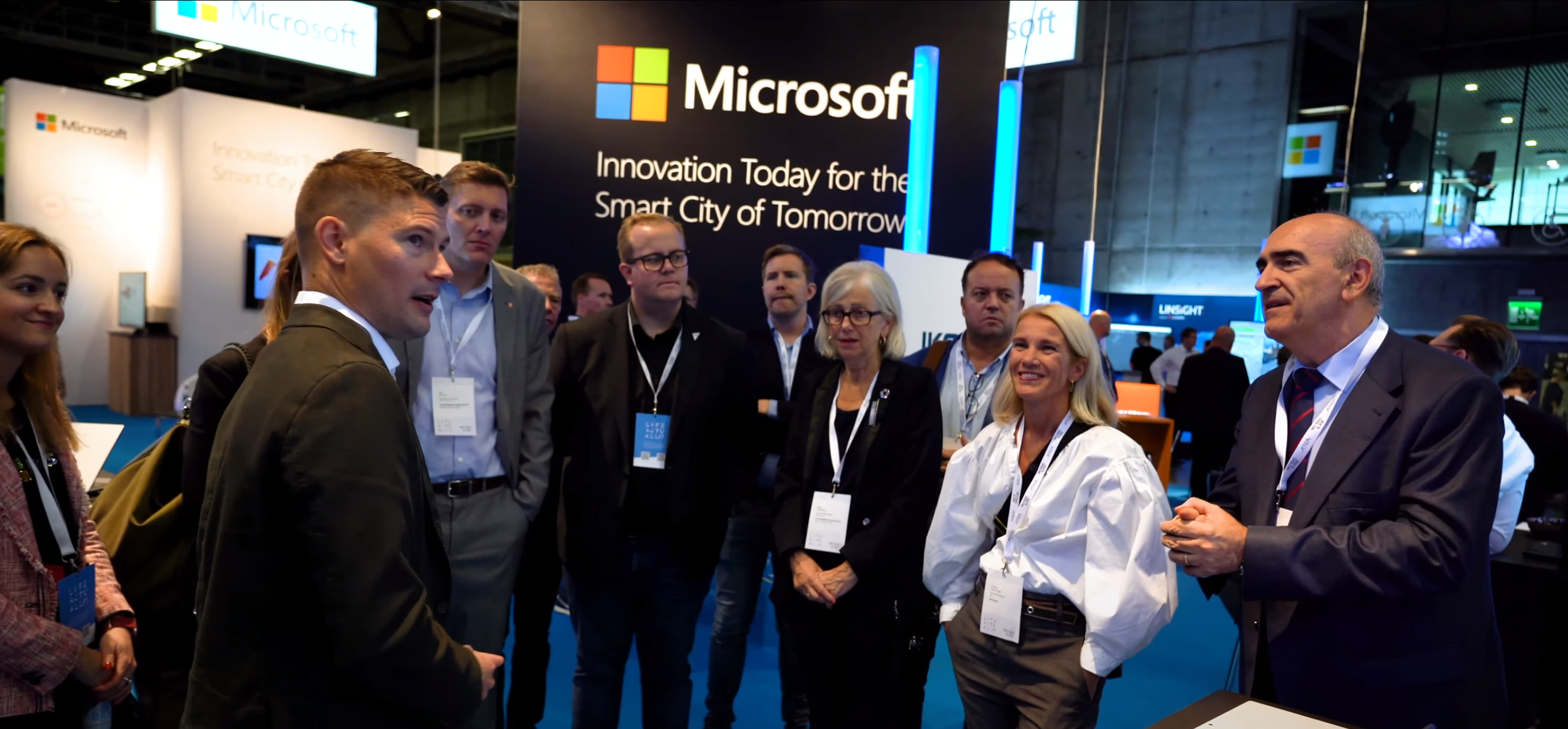Helping to #BuildFor2030
We are very proud to be partners with Microsoft, and have worked very closely with them the past years in promoting InfoTiles and our solution to deliver more sustainable water usage in cities and municipalities.
Microsoft is a partner to the United Nations and works continuously and actively towards honouring their pledge to support the UN Sustainable Development Goals (SDGs). This set of 17 initiatives focuses on impacting the world for good by 2030 by encouraging and celebrating their partners working towards the same goals.
To help accelerate the mission towards a better future by 2030, Microsoft launched the #BuildFor2030. The campaign aims to promote and advance their partners who advance the SDGs. The partners whose technology solutions align with the SDGs are celebrated for their work towards bringing us closer to a more inclusive economy.

InfoTiles' solution enables more sustainable water usage by digitising the environmental engineering departments within municipalities with data and information flowing seamlessly in real-time across departments. Benefits customers using InfoTiles enjoy include:
- Shortening the process from deviation discovery to corrected error.
- Making data, information and analysis accessible for all parts of the department – both in the office and out in the field.
- Advance warning about potential floods, wastewater overflow and other challenges.
We would like to thank Microsoft for including us as the only Norwegian partner in #BuildFor2030.
InfoTiles helps customers provide clean water and sanitation (SDG #6)
- Detecting and locating leaks faster meaning less water is wasted.
- Tracking water consumption and identifying anomalies thus reducing waste
- Managing stormwater response better leading to less contamination of potable water.
- Reducing the frequency and severity of contamination from stormwater through real-time management.
The InfoTiles platform helps reduce climate impact (SDG #13) by:
- Helping our customers improve situational awareness of their operations
- Identifying wasteful scenarios, practices and events.
- Encourage alternative transport by providing real-time cycling conditions.
Are you interested in learning more?
What is the 2030 Agenda?
In short, the 2030 Agenda was created in 2015 by the United Nations to create more sustainable development globally. It is often called a radical plan for humanity, and a new way of developing. With the Agenda comes the 17 Sustainable Development Goals (SDGs) that all nations within the UN have to abide by and work towards.
The Agenda is universal as we see that the majority of the world's poorest live in middle income countries – where the inequality is rising and the effects of climate change are felt by people and communities across the globe.
The Agenda requires all nations to take responsibility and take action to create a better future for everyone – by working with the 17 SDGs. The SDGs are interlinked, so one cannot just focus or work on a singular one, without it affecting another part of society. For example with interventions towards creating equality or environmental sustainability, will have affect on other parts of the SDGs. They also pledge to Leave No One Behind, which means – on average, the progress have been good, but if we keep measuring in average numbers – millions are left behind, and the Agenda is clear: We need to do more.
